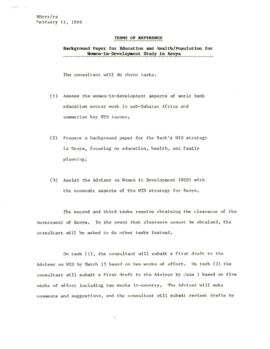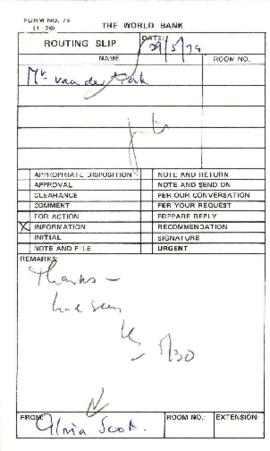Identity area
Reference code
Title
Date(s)
- 1970 - 1987 (predominant 1977 - 1987) (Creation)
Level of description
Fonds
Extent and medium
16.38 linear feet of textual records
Context area
Name of creator
Biographical history
Gender and development sector work in the World Bank originated within the context of the United Nations Decade for Women (1976-85). In 1977, the World Bank established the Adviser on Women in Development (WID) position. Gloria Scott was selected to serve as the first WID Adviser. The Adviser position initially reported to the Office of the Vice Presidency for Central Projects (CPSVP) from 1977 to 1980 and then to the Projects Policy Department (PPD) from 1980 to 1985. The responsibilities of the WID Adviser included reviewing Bank development projects in the preparation stages for potential implications for women, and advising on how projects could serve the unique needs of women. Additionally, the WID Adviser assessed projects and their long-term impacts on women. The WID Adviser focused particularly on projects related to the education, agriculture and rural development, urban development, industry, and population, health, and nutrition sectors. The WID Adviser additionally produced key research, studies,and training on women related issues. One result of this role was Gloria Scott's key publication: Recognizing the Invisible Woman in Development: The World Bank's Experience published in 1979.
By the mid-1980s, the WID Adviser role was successfully producing studies, policy, and training on women's issues in developing countries, but incorporation of women related measures into Bank funded development projects remained limited. This began to change however, with the establishment of the Women in Development Division (PHRWD) in July 1987 within the newly created Population and Human Resources Department (PHR). Barbara Herz, who succeeded Scott in 1985, served as the first Division Chief of PHRWD, and emphasized a greater focus on applying "women in development" policies to projects: "We want to get beyond studies and training. We want to show what can actually be done to include women in development programs and how that contributes to economic performance, easing of poverty, and other development activities" (The Bank's World, Volume 6: Number 11, November 1987, page 9).
The PHRWD was created alongside three other divisions in PHR: the Education and Employment Division (PHREE), the Population, Health and Nutrition Division (PHRHN), and the Welfare and Human Resource Division (PHRWH). The divisions of the PHR Department were responsible for:
-
formulating policies and strategies for human resource development and women in development, and developing new initiatives and Bank products;
-
conducting the supporting research, including the improvement of research capabilities in developing countries, and management of external research funded through the Research Support Budget;
-
improving methodology and identifying best practices;
-
performing ex-post evaluation of the in the Bank's human resource sector work;
-
providing operational support;
-
liaising with non-Bank organizations and professionals in this field;
-
developing household data on living standards; and
-
assisting in the recruitment and training of staff.
On January 1, 1993, the PHR was terminated as part of a larger initiative to align the organization of the Bank's sector work with the priority areas of its poverty reduction effort. Its functions were split between a new Population, Health and Nutrition Department (PHN) and an Education and Social Policy Department (ESP) in the Human Resources andOperations Policy Vice Presidency (HRO). ESP absorbed the functions of the PHRWD and the PHREE. It also absorbed the functions of the Divisions for Poverty Analysis and Policy (PHRPA), which was formerly the PHRWH. The ESP Department was responsible for:
-
formulating and disseminating policies and guidelines for its sectors;
-
monitoring the effectiveness of policies and approaches;
-
identifying and disseminating best practices and lessons of experience;
-
liaising with Bank-external organizations and professionals in the field;
-
assessing skills requirements and upgrading skills; and
-
providing operational support to the Regions.
The ESP Department did not have formal divisions, but was organized into task-specific teams. The following four teams were included: Education; Women in Development; Poverty Analysis and Policy; and Economic Analysis and Labor Markets.
In 1994, the World Bank shifted from a Women in Development (WID) policy to a Gender and Development (GAD) policy. WID policy focused exclusively on women's roles, responsibilities, and needs in regards to specific World Bank development projects. GAD policy still made women's issues a vital focus, but provided a broader policy that emphasized reducing gender inequalities between men and women by targeting the complex social, economic, political, legal, and cultural factors that impede women's participation in economic development. GAD policy in the Bank was prompted by the strategy paper Enhancing Women's Participation in EconomicDevelopment, and resulted in the adoption of the World Bank operational policy "OP 4.20 Gender and Development (GAD)" in 1994. The new policy emphasis evolved from the still limited integration of women's issues into World Bank development projects and programs. "OP 4.20 GAD" took a country level approach by mandating that Country Gender Assessments (CGA) be performed to diagnose gender related issues within in a member country. Once a CGA was complete, this information would become part of the Country Assistance Strategy (CAS), helping to embed gender-informed policy into all subsequent projects within that country. This differed greatly from WID projects that performed a social analysis of women's issues only at the development project level.
On July 1, 1995, the ESP was terminated and its replacement reflected the shift from WID to GAD policy. HRO became Human Capital Development and Operations Policy (HCO), and ESP was replaced by the Povertyand Social Policy Department (PSP). The ESP education functions were moved into the new Human Development Department (HDD). The WID functions of ESP were replaced by the Gender Analysis and Policy (GAP) Group. GAP was responsible for:
-
helping the Bank to define and implement its gender policies;
-
conduct research on gender-related issues in areas such as education, property rights, labor markets, and economies in transition;
-
provide gender training for World Bank staff;
-
and provide operational support to the Regional Vice Presidencies.
Minh Chau Ngyuen assumed the role of Manager for GAP from July 1995 to December 1996.
On December 31, 1996, the Human Capital Development Vice-Presidency (HCD, formerly the HCO) was terminated as part of President's Wolfensohn's reorganization of the World Bank. PSP was temporarily relocated under the oversight of Director Masood Ahmed of the International Economic Department (IEC), a unit within the Development Economics Vice Presidency (DEC). Ahmed was transitioning into the role of Vice-President for the new Poverty Reduction and Economic Management Network (PREM). In this transition period from January 1, 1997 to June 31, 1997, the PSP became the Poverty, Gender, and Management Units (PGP). The various divisions of PGP were then mapped into the newly created PREM sector departments. Much of PGP staff and functions were mapped into the PREM Gender Division (PRMGE), which launched in July 1997. In 1997, the PRMGE consisted of the Gender and Development (GAD) Board led by the head role of GAD manager. In 1998, the head role of GAD was raised to director. From 1997 to 1998, Joanne Salop served as both the Interim Manager and the Director of PRMGE. The GAD responsibilities included:
-
knowledge management;
-
regular monitoring and reporting of policy implementation;
-
and for building capacity to mainstream gender within the Bank.
In 1999, Karen Mason succeeded Joanne Salop to become the Director of PRMGE. She served in this role until January 2005.
The publications of the World Bank policy research report Engendering Development - Through Gender Equality in Rights, Resources and Voice in 2001, and the PRMGE produced strategy paper "Integrating Gender into the World Bank's Work: A Strategy for Action" in 2002, prompted revision of "OP 4.20 GAD" in 2003. Both publications provided a detailed framework in how gender actions could be further mainstreamed into Bank operations. This produced the revised "OP 4.20 GAD" and a new parallel bank procedure "BP 4.20 GAD". The new revisions provided significantly more guidance for gender policy integration for country directors, sector managers, and task teams than had previous "OP 4.20 GAD" policies. PRMGE remained the main gender and development sector in charge of oversight, monitoring, and support of gender and development initiatives within the World Bank, but the "OP 4.20 GAD" embedded gender and development policy compliance measures across networks, regions, and country operations.
In 2005, Mayra Guvinic succeeded Karen Mason as the Director of PRMGE, and served in this position until 2011.
In 2006, the PREM Vice President, the PRMGE GAD Board, and other World Bank regional and network officials partnered with the OECD Development Assistance Committee Network on Gender Equality (GENDERNET) to pursue a plan to achieve the UN Millennium Development Goal 3 (MDG3), which seeks to "Eliminate gender disparity in primary and secondary education, preferably by 2005, and in all levels of education no later than 2015".
GENDERNET included a forum of gender experts from numerous international development agencies, including World Bank officials. The partnership resulted in the Gender Equality as Smart Economics: A World Bank Action Plan. The Action Plan was intended to achieve MDG3 goals and economic empowerment of women, but it had an additional purpose of hastening the mainstreaming of gender policies outlined in "OP 4.20 GAD" and "BP 4.20 GAD" into World Bank operations. The Action Plan was undertaken over the years 2007 to 2011.
In August 2011, Jeni Klugman succeeded Mayra Guvinic as Director of PRMGE.
In 2012, gender and development policy received unprecedented attention and visibility within the World Bank when the Bank's key annual publication of the World Development Report (WDR) focused on the theme of Gender Equality and Development.
Repository
Archival history
Immediate source of acquisition or transfer
Records were transferred to the World Bank Group Archives using approved records retention and disposition schedules.
Content and structure area
Scope and content
The fonds primarily consists of records related to the Adviser on Women in Development (WID) from the years 1977 to 1987. Subject files kept by WID Advisers Gloria Scott and Barbara Herz are included for the years 1977 to 1986, and illustrate the numerous activities and responsibilities associated with this role. Reference files related to women and development issues contain materials created in the years 1973 to 1987. WID operational support records detail the development project evaluations, studies, and training sessions done by WID team members for the years 1977 to 1987.
Appraisal, destruction and scheduling
Accruals
Accruals are expected.
System of arrangement
Conditions of access and use area
Conditions governing access
Records are subject to the World Bank Policy on Access to Information.
Conditions governing reproduction
Records are subject to the Copyright Policy of the World Bank Group.
Language of material
- English
Script of material
Language and script notes
Physical characteristics and technical requirements
Finding aids
Researchers who are interested in operational projects are encouraged to reference the Projects and Operations Database on-line. The Projects and Operations Database search can be narrowed to include only those projects that involve the Gender and Development Sector. A variety of final reports specific to each project can be found in this manner. Should researchers wish to access the archival records related to these projects, cite the Project ID number when making a request.
Allied materials area
Existence and location of originals
Existence and location of copies
Related units of description
Notes area
Alternative identifier(s)
Access points
Subject access points
Place access points
Name access points
Genre access points
Description control area
Description identifier
Institution identifier
Rules and/or conventions used
Internal World Bank Group Archives rules based on ISAD(G).
Disclosure status
Level of detail
Dates of creation revision deletion
20 March 2014



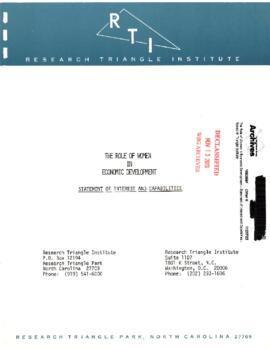
![Women in Development - Missions - Development Assistance Community [DAC] , Organization for Econo...](/uploads/r/world-bank-group-archives/e/8/5/e85b977315cf0975a124f9b9811b8edb18a7b02a0ee78bf4f8d6175aa7fa8505/WorldBankGroupArchivesfolder1101589_142.jpg)
![Women in Development - Organization for Economic Cooperation and Development [OECD] / Development...](/uploads/r/world-bank-group-archives/6/3/4/63421bd0d31a857d1de34d19d3bff9fc83e715c759cc76b5599869f2f78de1ee/WorldBankGroupArchivesfolder30196303_142.jpg)

![Women in Development - United Nations [UN] / Consultative Committee on Administrative Questions [...](/uploads/r/world-bank-group-archives/d/0/8/d0865f0062350555cdc4b20f1dedee5975495edcdad8ad76d211b512ab1f78f4/WorldBankGroupArchivesfolder1101659_142.jpg)
![Women in Development - United Nations Development Program [UNDP] - Correspondence](/uploads/r/world-bank-group-archives/1/1/d/11d8b5963a1a16c8d6d4f51f65ffd15e6b37d30f2b87151fb356ed391f52854b/WorldBankGroupArchivesfolder1101686_142.jpg)
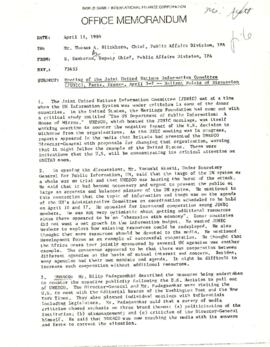
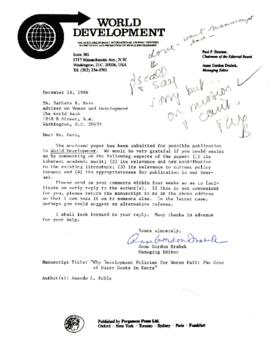
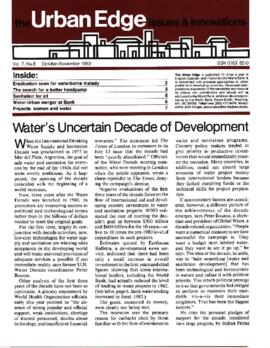
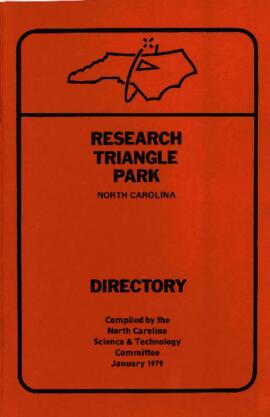
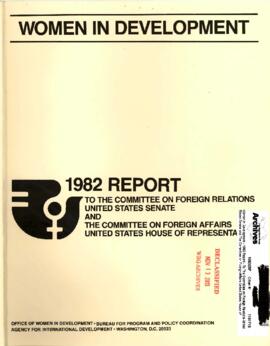

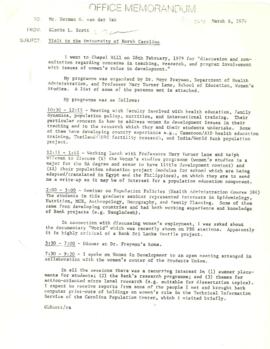
![Women in Development - United Nations [UN] - Correspondence](/uploads/r/world-bank-group-archives/6/9/6/696a151a2646ef03c12936d4fb58f3be5c4f45594cf1d7e20afd0f533ab5466a/WorldBankGroupArchivesFolder1101640_142.jpg)
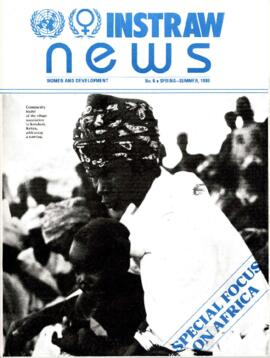
![Women in Development - Volunteers in Technical Assistance [VITA] - Correspondence](/uploads/r/world-bank-group-archives/0/1/8/0183767ff59d0269bbfc67a1641a004c87fd3d3af48874e728914a0ccdd94ccd/WorldBankGroupArchivesFolder1101676_142.jpg)

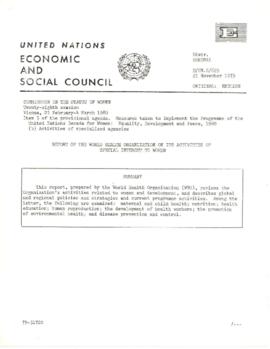
![Women in Development - United Nations Industrial Development Organization [UNIDO] - Correspondence](/uploads/r/world-bank-group-archives/9/7/4/9749d9faea1c4f508d0ec011fe74d9087c5dab22992daa266512601ed61b59bf/WorldBankGroupArchivesFolder1101684_142.jpg)
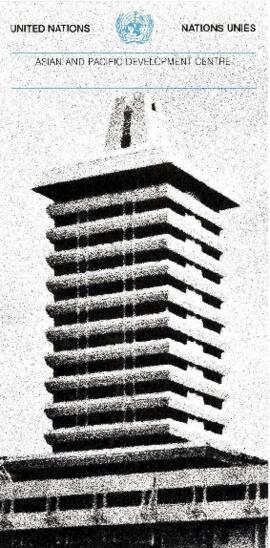
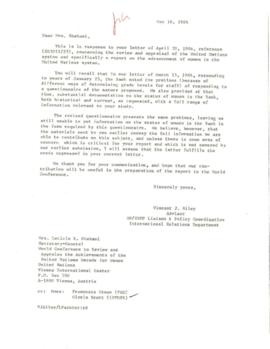

![Women in Development - United Nations Development Fund for Women [UNIFEM] - Correspondence](/uploads/r/world-bank-group-archives/f/d/d/fdd99b761a0a54fdd63134adaa65755fed6450c27ea22f0a25e7f9ee6388c77d/WorldBankGroupArchivesFolder1101653_142.jpg)
![Women in Development - United Nations Development Program [UNDP] - Inter Organizational Assessme...](/uploads/r/world-bank-group-archives/6/8/f/68f5dd25f0e3b03b4bb0e43eb01c7f55afb2350993ccdc3ac67b20ec74eda760/WorldBankGroupArchivesFolder1101687_142.jpg)
![Women in Development - United Nations Economic and Social Council [UNECA] - Correspondence](/uploads/r/world-bank-group-archives/f/a/e/faede9977f6afe64008dc17932ed739f5591d71b6bf79903d1191202cc3f3181/WorldBankGroupArchivesFolder1101655_142.jpg)

![Women in Development - United Nations [UN] Branch for the Advancement of Women - Correspondence](/uploads/r/world-bank-group-archives/9/4/f/94fc4d7a746b71410e5963ccdac7f0a8485aff474256bf202064ff91520edeaf/WorldBankGroupArchivesFolder1101658_142.jpg)
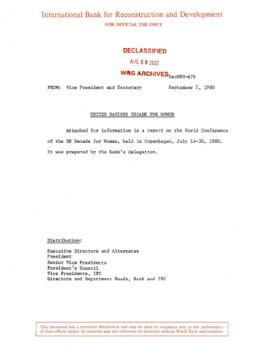
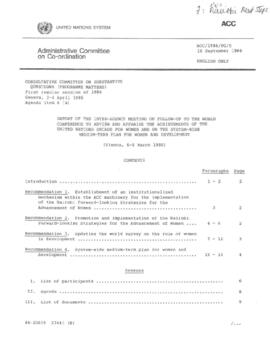
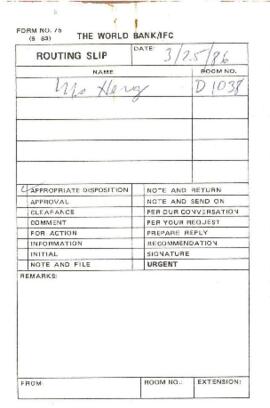

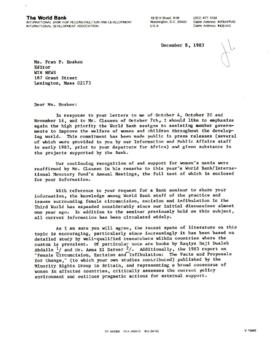
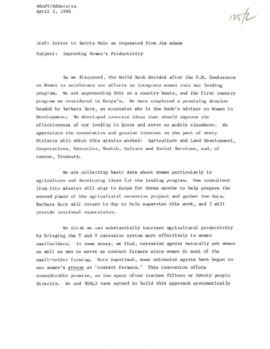
![Women in Development - Country Strategies - Kenya Women in Development [WID] Study](/uploads/r/world-bank-group-archives/2/7/f/27f020e09f193fa633f98c481d0106414401d4bc50b946bceb536efec155cbf7/WorldBankGroupArchivesFolder1101350_142.jpg)

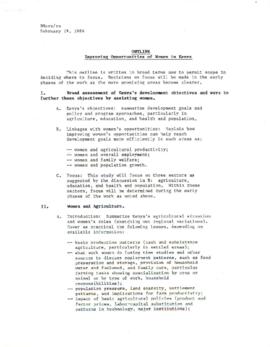

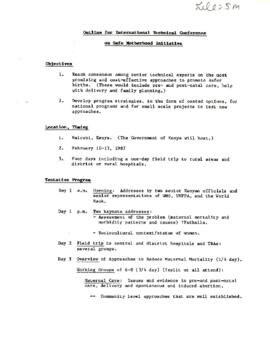

![Women in Development - Economic Development Institute [EDI] Activities - 1979 - 1985](/uploads/r/world-bank-group-archives/1/6/c/16c6e56333c89de15009ada146ac0333576b03c09a5e35b604b7884e1226f420/WorldBankGroupArchivesfolder30196305_142.jpg)
